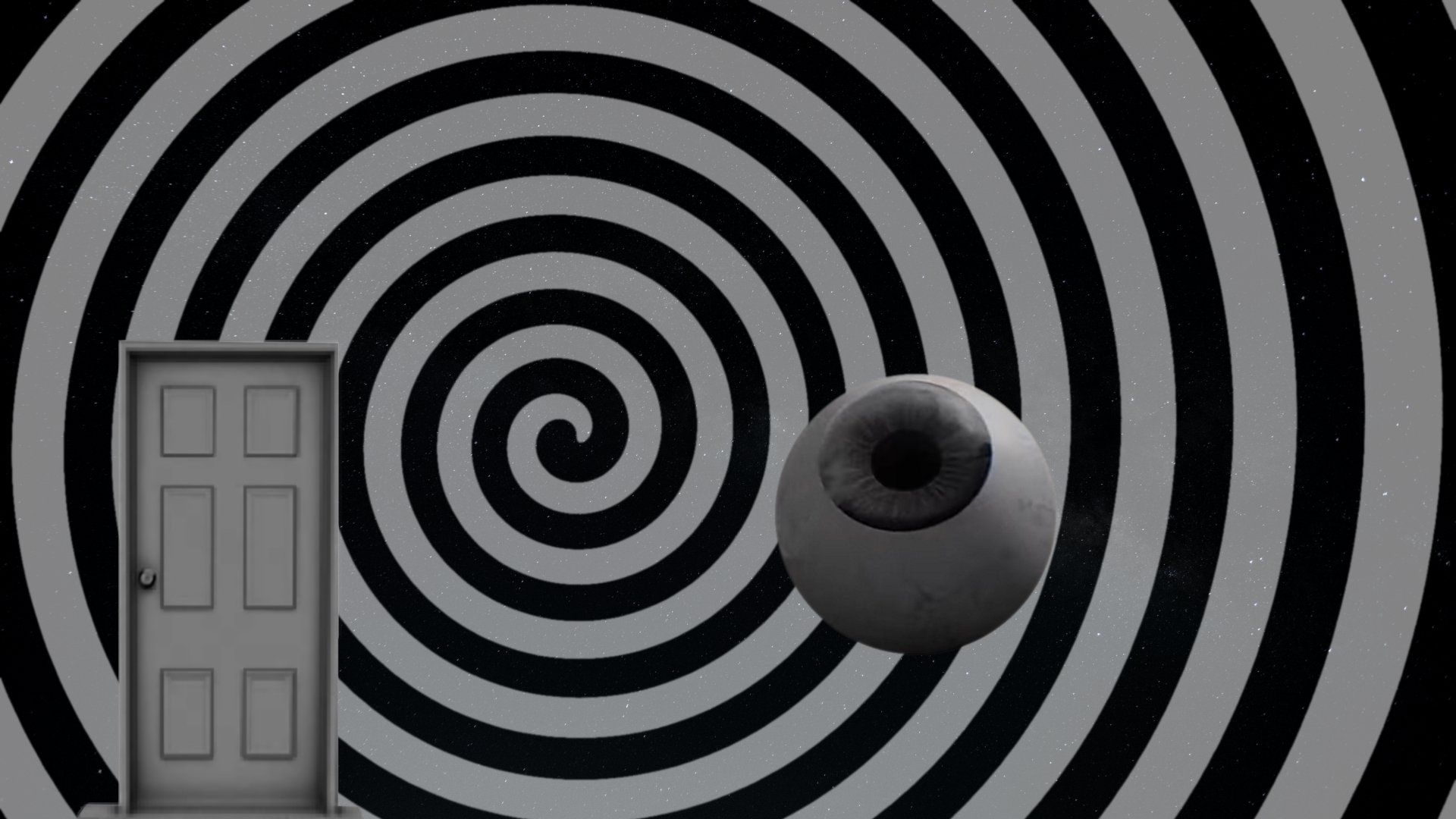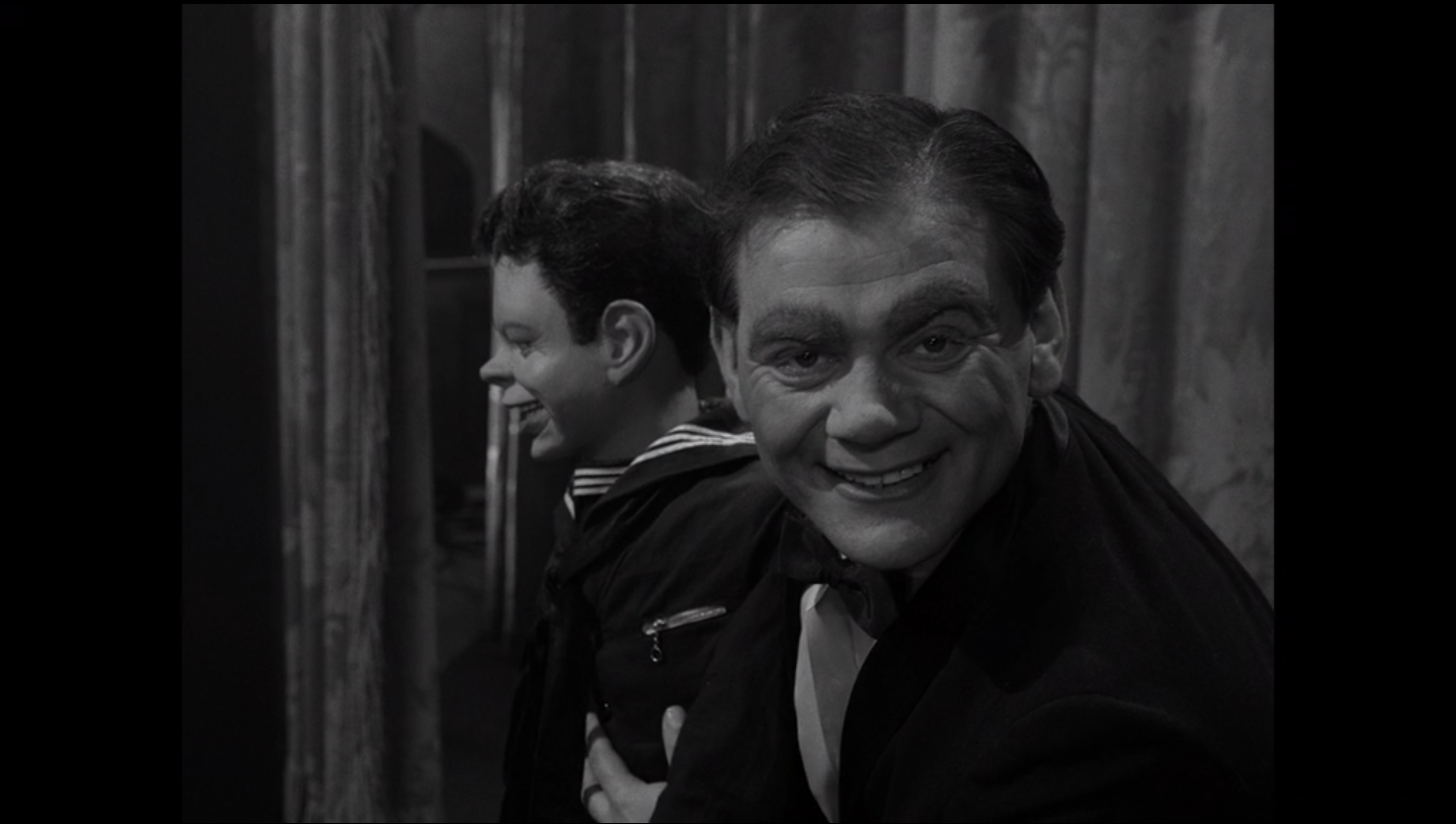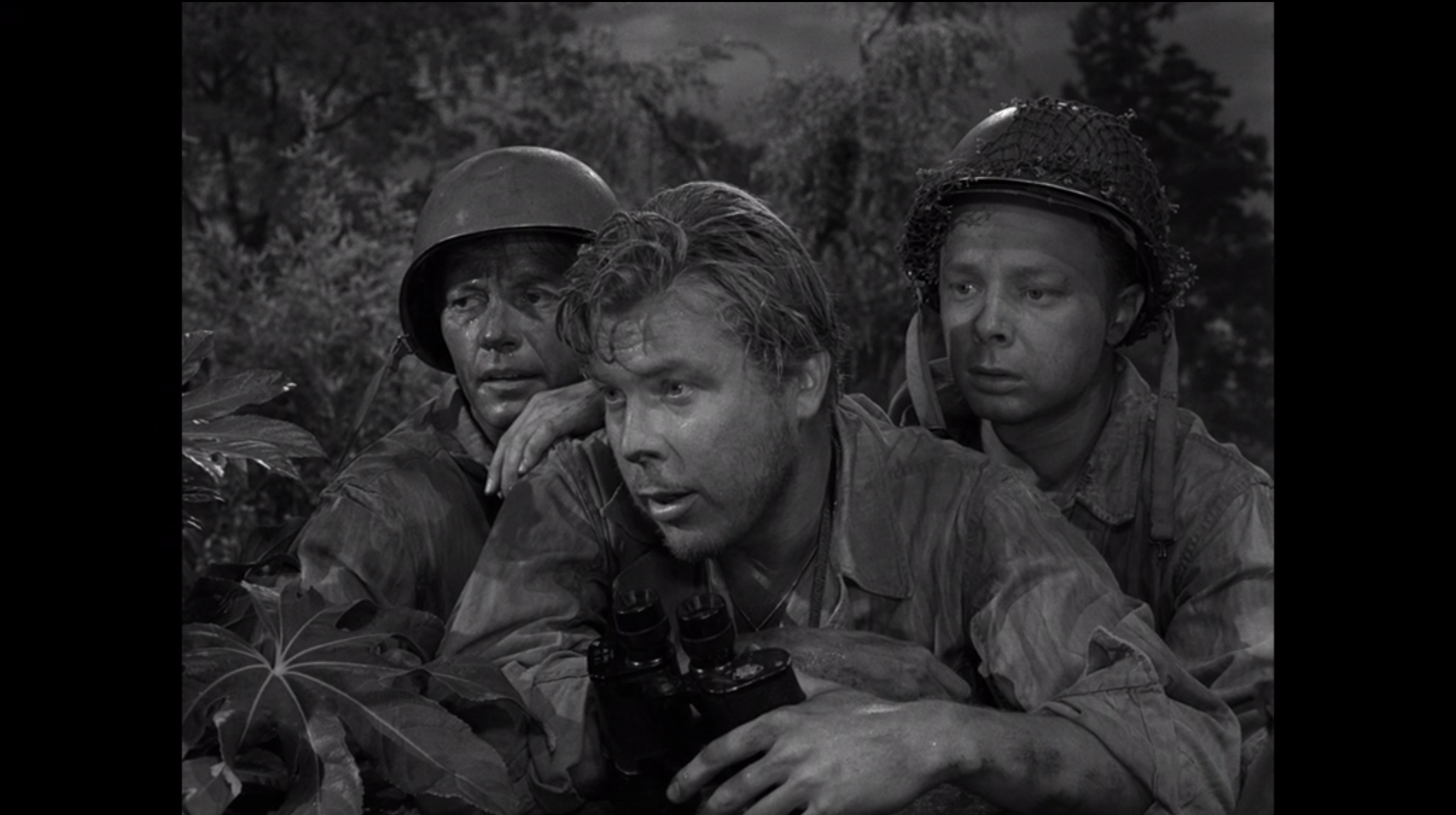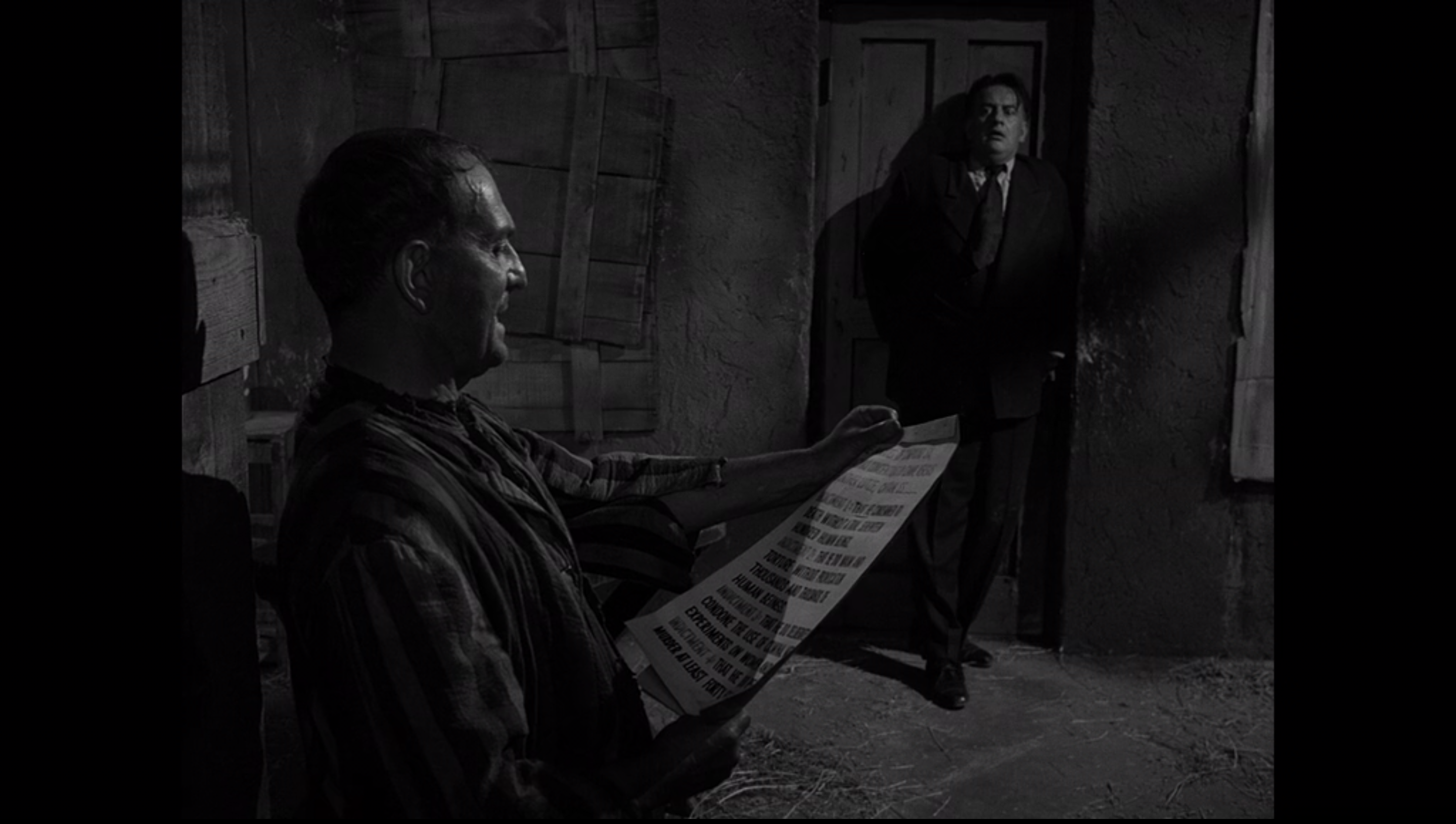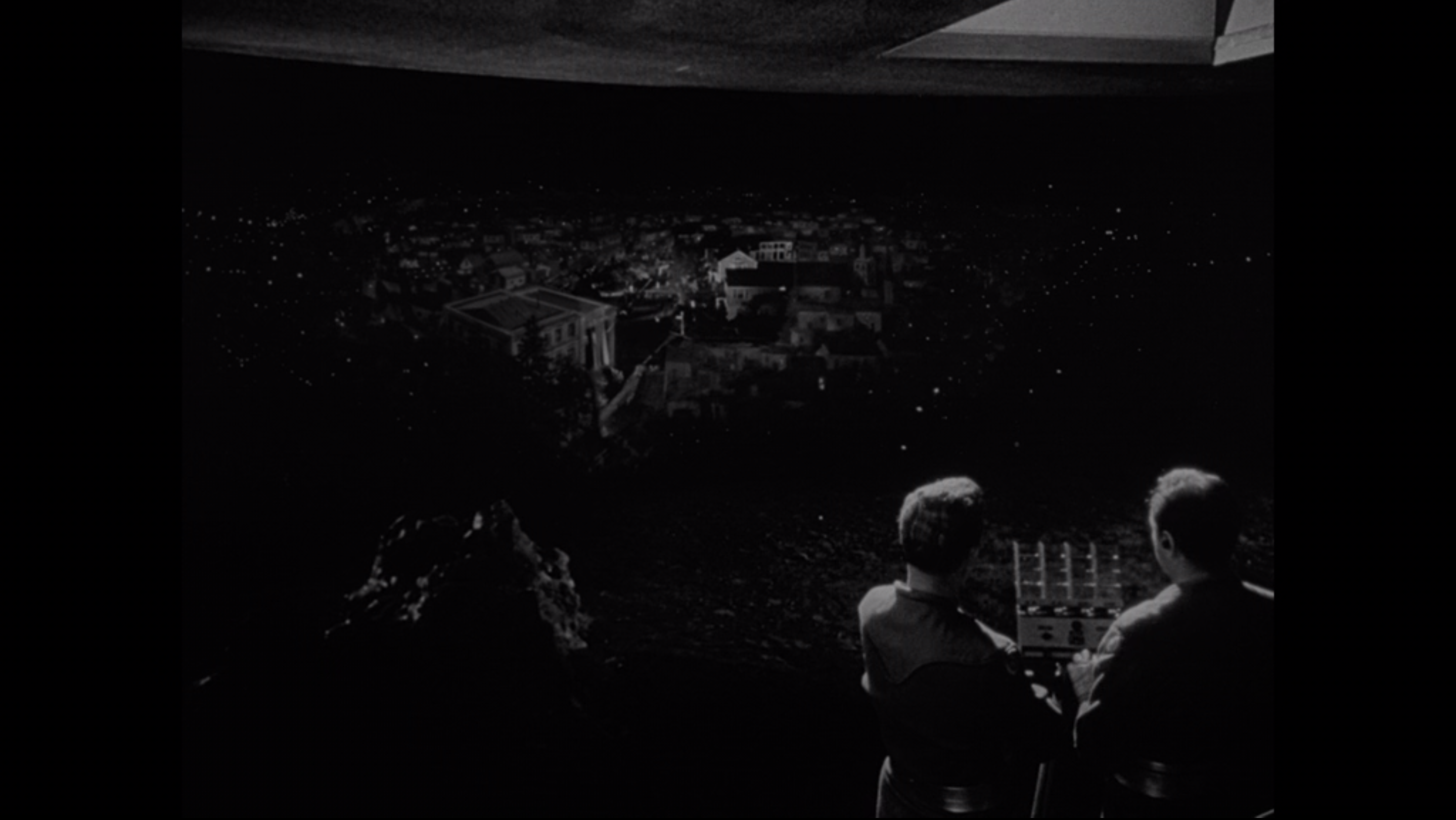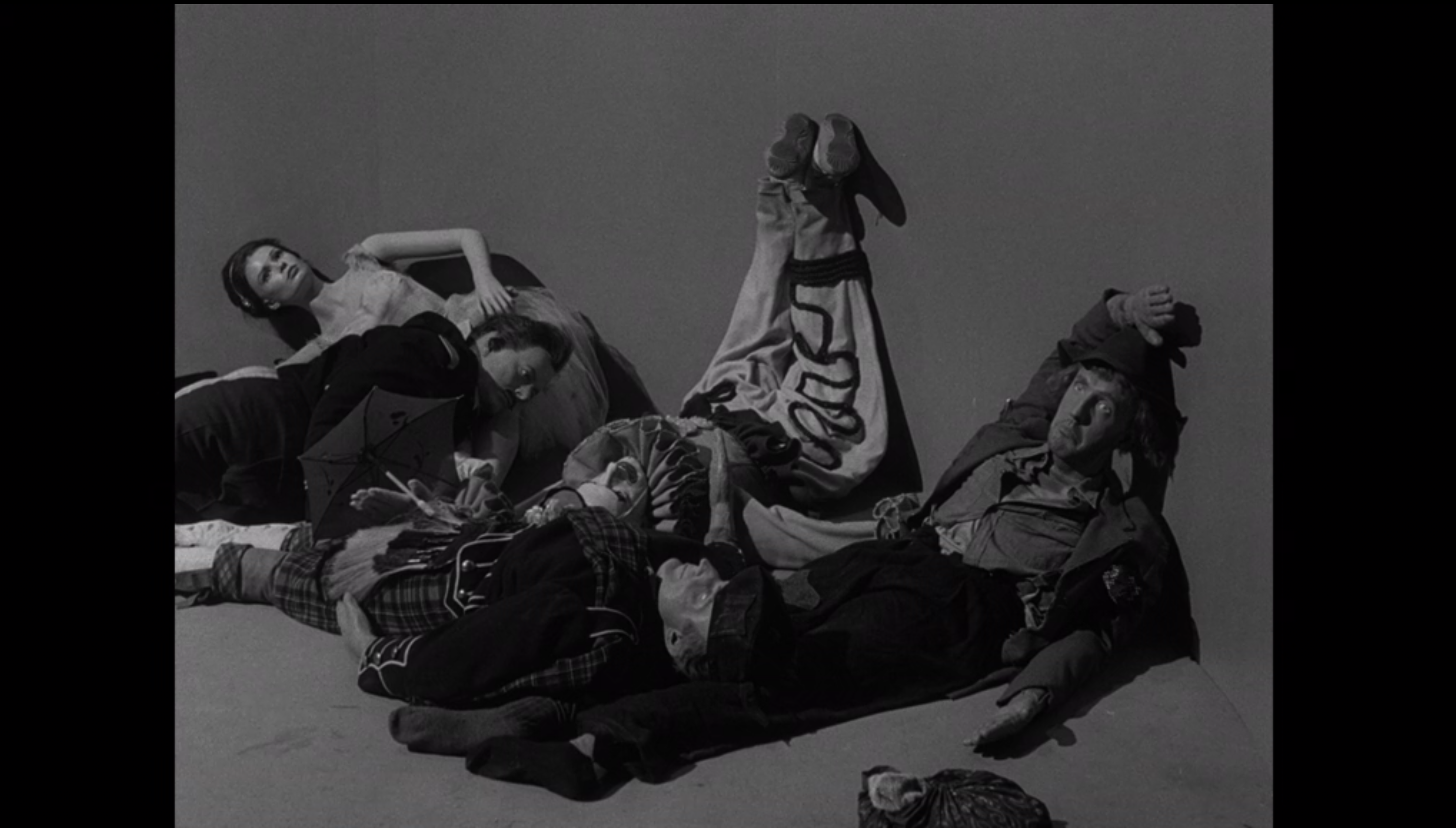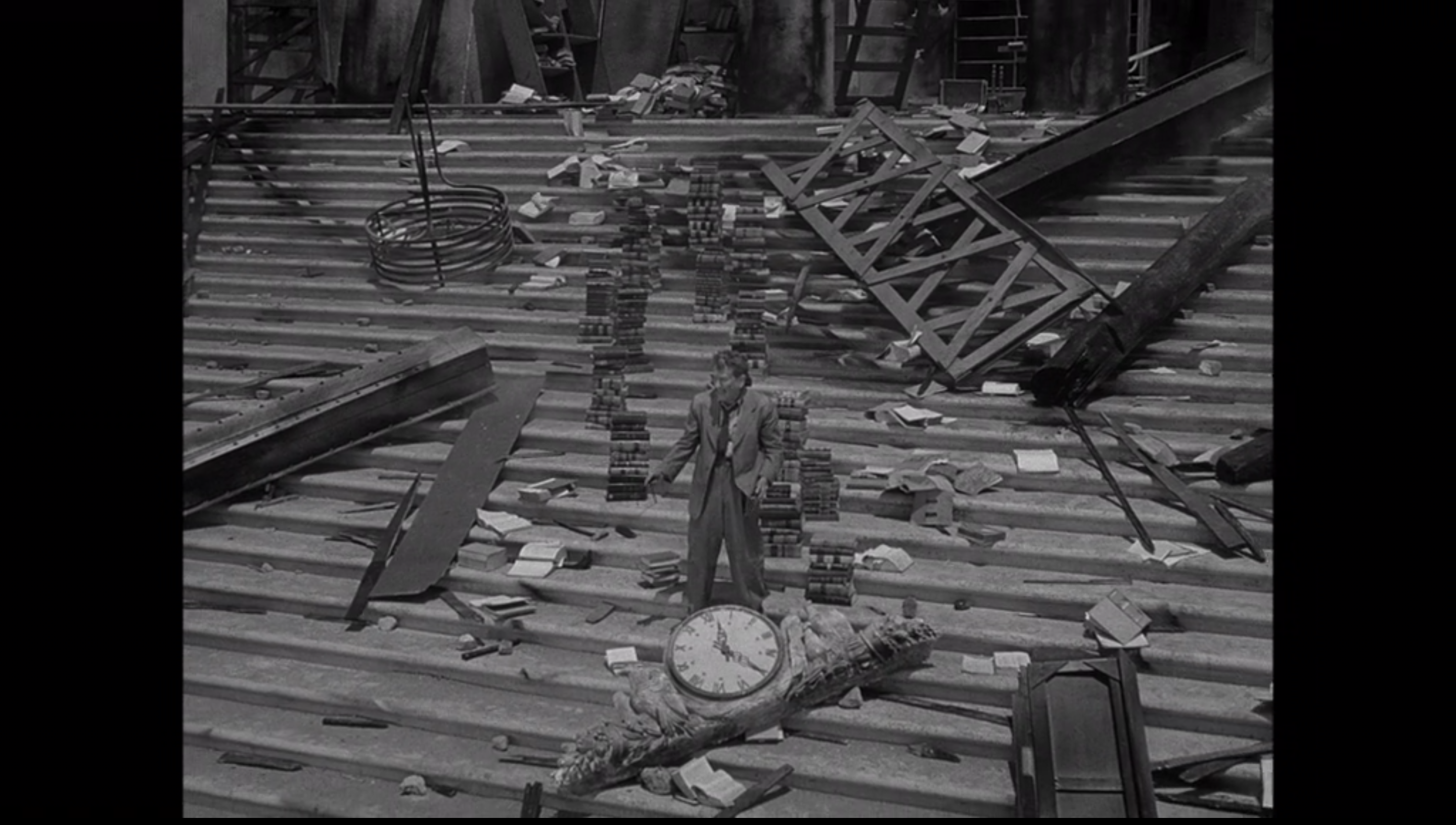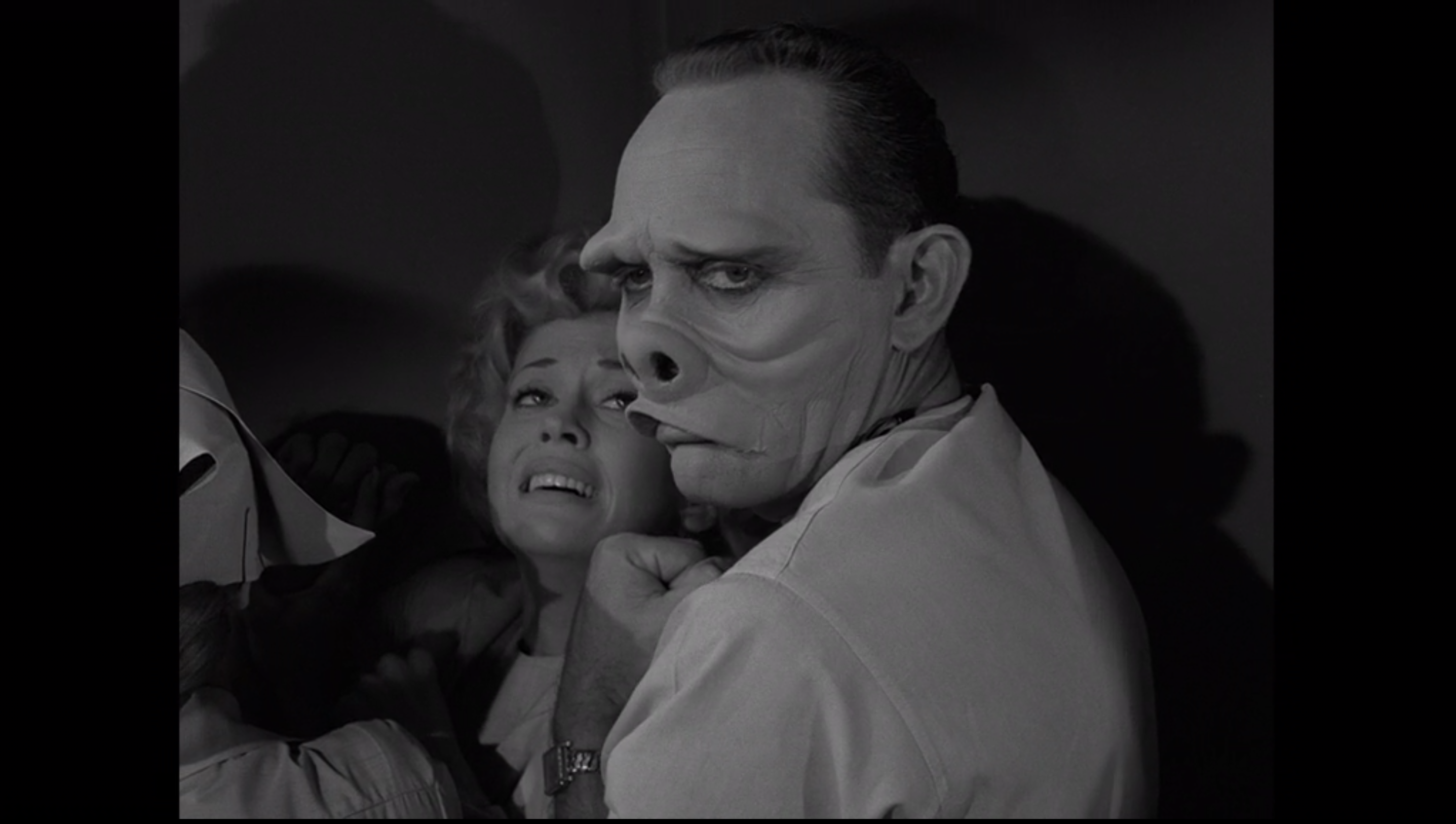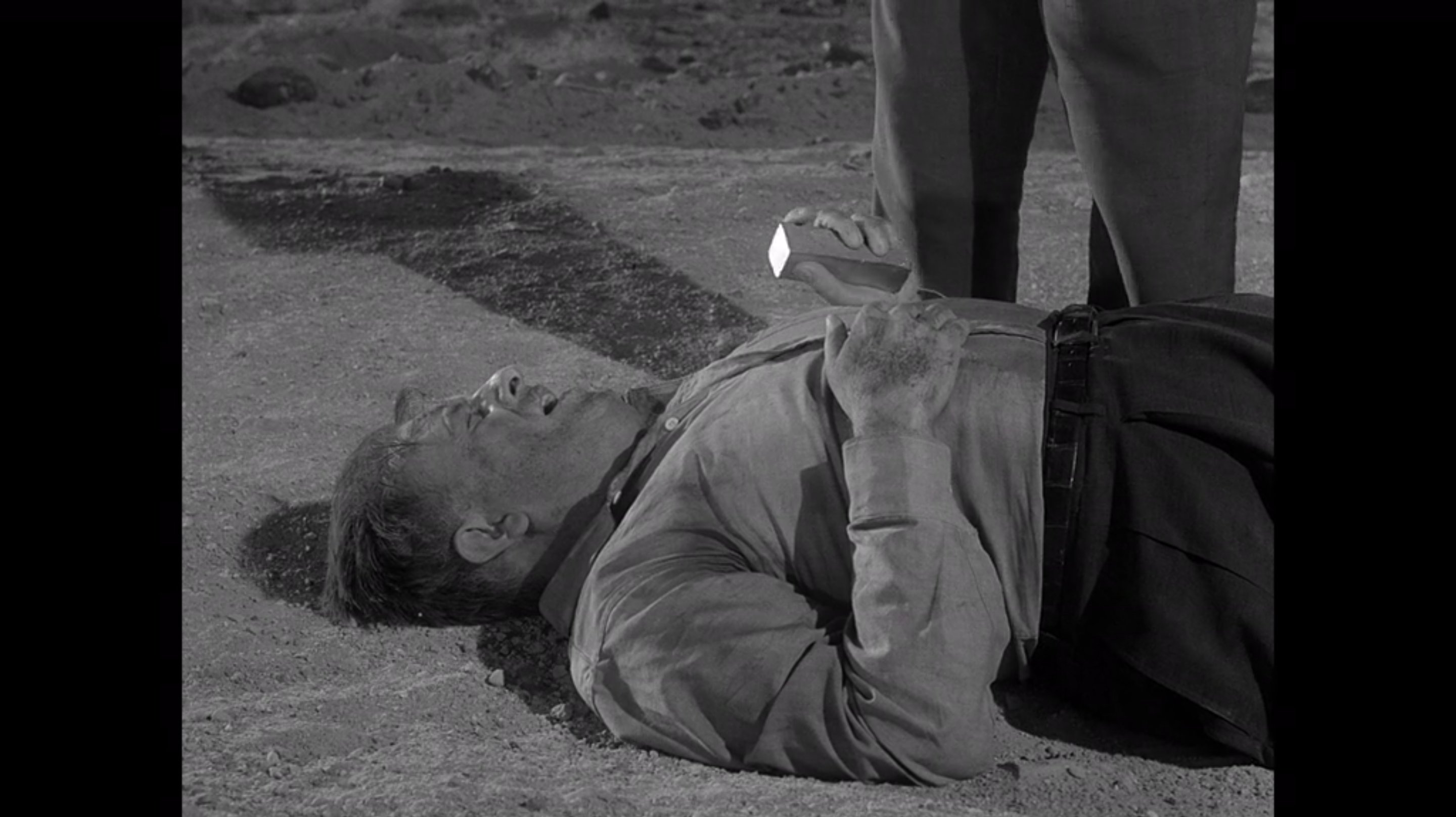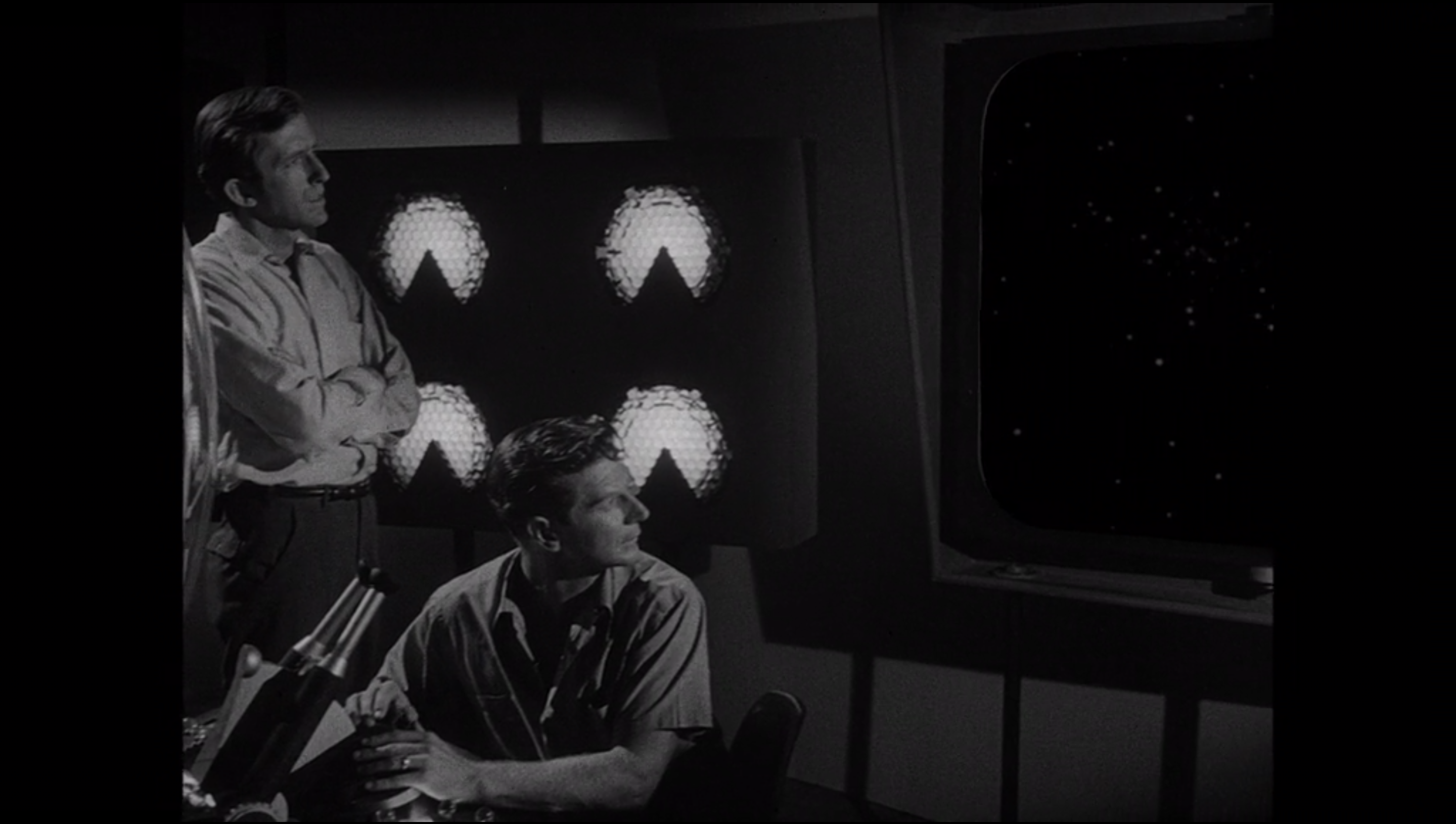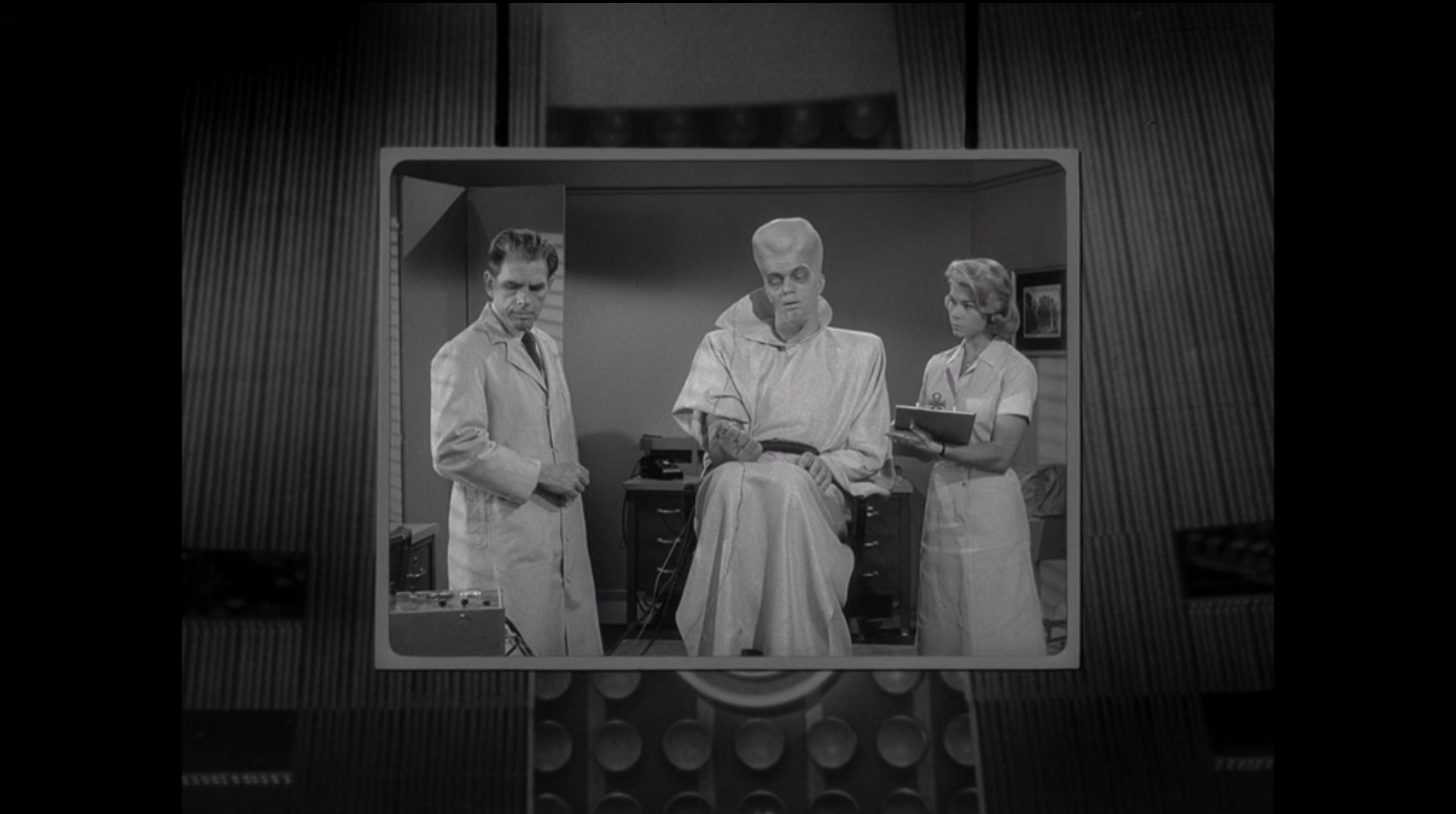You’re moving into a land of both shadow and substance, of things and ideas, you’ve just crossed over into… a MovieWeb article about The Twilight Zone. If you’re reading this article, you’ve probably found yourself at one time or another sitting in a dark room, alit only by the flicker of the television screen as eerie music crackles through your speakers and one of TV legend Rod Sterling’s iconic introductions begins. The Twilight Zone is truly an experience, a pop culture phenomenon that has withstood the test of time and preserved its relevancy like few others, effectively earning its title as one of the best TV anthologies of all time.
In a period much like our own—rife with suspicion, fear, and uncertainty—The Twilight Zone had the distinct ability to make poignant remarks about society while simultaneously offering viewers a kind of escape never before seen on television. These timeless tales of the human experience utilize science fiction, history, comedy, romance, horror, and far more to detail the follies and triumphs of man. They are often so relatable and powerfully executed that, on occasion, you might even think you’ve found yourself in the Twilight Zone.
The show is known for its staggering, depressing, enlightening, and otherwise mind-bending endings. The 156 episodes of the series are packed with just such material, which makes it hard to choose favorites. Each episode is special for its own reasons, but here are some of what we consider the hardest-hitting Twilight Zone endings.
10 The Dummy
This episode follows a ventriloquist by the name of Jerry Etherson. At the end of a rather successful show, Jerry is bitten on the finger by his dummy, Willy. This causes concern for Jerry, who begins drinking, much to the dismay of his agent. It is eluded that his agent has encouraged him to seek psychiatric help on a number of occasions. Jerry decides to use another dummy instead of Willy for his next show, but is met with ghastly voices and shadows that follow him around the venue. Because nobody else appears to hear or see these events, it seems true that Jerry is suffering from delusions. In a fit of rage, Jerry destroys what he believes to be Willy, but was actually his alternate dummy. Willy sits relaxed on the couch, taunting Jerry. Willy informs him that the two have a sort of parasitic relationship, and that it was Jerry who put the thoughts and words into his head. After a bout of Willy’s truly maniacal laughter, the pair are introduced as Willy and Jerry. Jerry now has a cartoonish face while Willy has a disturbingly human one—their roles have been reversed. This episode makes the viewers skin crawl for a variety of reasons. The loss of will, the loss of sense, and the loss of mind, not to mention the uncanny nature of dummies certainly makes this one for the books.
9 The Quality of Mercy
At the end of World War Two, a group of US soldiers holds a position just across a river from wounded and starved Japanese soldiers, holed up in a cave. They sit, rather relaxed, thinking that victory is within reach. As they ponder their experiences in the war and look forward to their return home, a fresh squad leader arrives. This is his first time on the battlefield, and he is anxious to drive up his body count, even though those under his command have no interest in fighting any longer. The fresh face wants to raid the enemy position. As he looks through a pair of binoculars, something strange happens to him. He is transported into the body of one of the Japanese soldiers, who is looking back at the GIs through his own binoculars. In this vision of sorts, the bloodthirsty newcomer understands the senselessness and brutality of war. He sees that his enemy are individuals just like him and his men, who had nothing to do with the start of this war and want to go home as badly as the US soldiers. When he snaps out of it, his mind is forever changed, and he calls off the strike. Rod Sterling had experienced the horrors of the Pacific Theater first hand and relates it to every human conflict. In the final lines of dialogue, one of the battle worn soldiers tells the newcomer, “I wouldn’t fret. I’m sure there’ll be other wars, other countries, other human beings you can knock off.” He responds, “I hope not. God help us, I hope not.” This episode is truly a tearjerker and sadly retains its relevance as long as humans turn their weapons against one another.
8 Deaths-Head Revisited
This episode takes on the age-old excuse of “just following orders”. It follows Gunther Lutze, a former SS Captain at the Dachau concentration camp. Completely unrepentant, he returns to Bavaria to tour the now-desolate camp he once ran and relive his glory days. During his walkabout, he is met by a familiar face, Alfred Becker, an inmate at the camp. Becker presses Gunther about his choices, which Gunther claims were simply mistakes, orders that he was forced to follow. Several other inmates join Becker and put Gunther on trial from beyond the grave. Once he’s found guilty, the inmates inflict intense illusions onto Gunter, such as being tortured, shot, and hanged. The illusions persist and Gunther collapses to the ground. Local authorities find him, delirious, and send him to a mental institution where his horrible illusions continue. A fitting punishment for a man responsible for the individual murders of 14 people and the death and torture of 1,700 more.
The ending is satisfying to say the least, but leaves the viewer feeling empty knowing that, often, no such retribution was rendered in real life. Rod Sterling reminds us in this episode that horrors beyond comprehension exist as a result of human action in our own world. The ending monologue reads: “All the Dachaus must remain standing. The Dachaus, the Belsens, the Buchenwalds, the Auschwitzes – all of them. They must remain standing because they are a monument to a moment in time when some men decided to turn the Earth into a graveyard. Into it, they shoveled all of their reason, their logic, their knowledge, but worst of all, their conscience. And the moment we forget this, the moment we cease to be haunted by its remembrance, then we become the gravediggers. Something to dwell on and to remember, not only in the Twilight Zone but wherever men walk God's Earth.”
7 The Monsters Are Due on Maple Street
This particular episode is an all-time classic. Even those relatively unfamiliar with The Twilight Zone have probably come across it at some point. The story details the dangers of suspicion and scapegoating, actions common both then and now. Maple street, a picturesque, hospitable, and generally connected suburban neighborhood experiences a strange occurrence one morning. A large object flies noisily over the resident’s homes, blotting out the sun for a moment. The residents continue about their day until they find that all of their electronic machinery no longer functions. Gradually, the former closely-knit neighbors point fingers at one another, based on circumstantial and inconsequential details. One of the neighbor’s car starts on its own, another stares at the sky at night, a third has a ham radio. Each are suspects because of these “facts”, and even the other residents are not safe from suspicion, depending on whose story they support. The situation descends into madness and results in a physical struggle for power.
As this is occurring, a dark figure brandishing a hammer walks down the sidewalk towards them. One of the men grabs a shotgun, which is hastily commandeered by one of the other neighbors. He fires on the figure. The group gathers around to find that it is their friend who had gone to see if other neighborhoods were experiencing the same thing, and that he is dead. The houses and machines then begin turning off and on wildly, further fueling the frenzy. Just moments later, the residents begin destroying their own neighborhood. The camera zooms far from the once benign residence and shows two aliens perched on a hill, watching these events. The aliens discuss between themselves how easily humans are manipulated by something as simple as inconsistency, and that paranoia and panic leave them blind to reason. They reveal that they intend to take over the earth with this very strategy.
The episode boasts a compelling story and an excellent twist ending. It also demonstrates the dangers of manufactured fear, something we could all be keener to in the modern day. As the aliens said, “They pick the most dangerous enemy the can find, and it’s themselves.”
6 Five Characters in Search of an Exit
In this episode, an Army Major wakes up in a large gray cylinder. Around him are a clown, a hobo, a ballet dancer, and a bagpiper. The group has no memory of who they are or how they’ve found themselves here. The most acceptable theory so far is that they are trapped in hell. The major wants badly to escape, while the others who have been there longer are rather apathetic to the prospect. He rallies them with a plan to utilize a human tower and a grappling hook to pull themselves over the edge. As the plan is being implemented, the cylinder is shaken roughly, causing the major to fall outside the cylinder. He is tossed back in, and we discover that all five of them had in reality been collected toys for an orphanage. The ballerina, now a doll, places her waxy hand on the head of the major as tears soundlessly seep through her emotionless face. This episode may not have the philosophical or existential aspects that others do, but the twist is one that is very difficult to catch onto. Further, Rod Sterling gets the reader to sympathize with dolls in a trashcan, which is impressive in and of itself.
5 Time Enough at Last
This is an episode that will likely be found on most Twilight Zone lists. Henry Bemis, a mild-mannered bank teller wants nothing more than to read his books undisturbed. To his distress, he is hounded by his employer and nagging wife alike. Henry is perhaps one of the most sympathetic characters in the Twilight Zone series. In an ultimate display of cruelty, Henry’s wife asks him to read her some poetry from one of his books. He excitedly takes it up, only to find that she has blacked out the pages. She continues to berate him and destroys the book. The next day, Henry is enjoying his solitude in the bank vault. As he reads, a massive explosion rocks the earth just above him. He ascends from the vault and finds his entire city decimated. He wanders the barren landscape to the public library, where he organizes piles upon piles of books to read in the coming days. As he embarks to pick up his first read, he stumbles, knocking his glasses to the ground. They shatter, leaving Henry blind, unable to live out his own heaven on Earth.
The episode ends as he sobs behind the shattered lenses. This is truly a heartbreaker of an episode. The audience wants so badly for Henry to get what he wants, after all, he isn’t asking for much. We are overjoyed along with him as he prances about the rubble, and then are thrust into utter despair in the last two minutes of the episode, as Henry’s heaven turns to hell.
4 Eye of the Beholder
We meet Janet, the main character of this episode, as she sits in a hospital bed with bandages covering her face. She has just undergone her 11th reconstruction surgery to better conform to the beauty standards of her society. Doctors and nurses with obscured faces stand around her in the shadows. One of the doctors remarks that he wishes people weren’t judged so harshly on their looks. He’s quickly reminded by a nurse that what he has said is treasonous. He removes the bandages, and reveals a strikingly beautiful young woman. At first the audience is lead to believe that the surgery was a great success, but as the cameras view expands, we find that the doctors and nurses all have very disturbing pig like facial structures. Large TV screens throughout the hospital display this dystopia's leader calling for even further conformity. Luckily, Jane is sentenced to exile and is escorted by a handsome man to a village filled with “the ugly” so as not to disturb the state.
This episode packs the greatest features of the Twilight Zone into one. The story is unique and distressing, it comments on trivial beauty standards, packs quite a punch in the twist department, and even gives us a happy ending – a rather rare occurrence in the Twilight Zone.
3 The Rip Van Winkle Caper
This episode features criminal masterminds Mr. Farwell, Mr. Erbie, Mr. Brooks, and Mr. De Cruz and their convoluted scheme to pocket a million dollars in gold. The four steal the precious mineral from a cargo train leaving Fort Knox. They make off with the gold and stash it in a cave in Death Valley. Farwell explains to the others that he has created suspended animation chambers, which will allow them to bypass the next hundred years and wake up long after the investigation of their crime has been forgotten.
Sure enough, one hundred years later the men wake up. They’re unsure of the success of the plan until they find Erbie, who has been relegated to skeletal remains as a result of a falling rock cracking his container. There’s a skirmish between the other three men almost immediately, resulting in the death of Brooks. De Cruz and Farwell pack as much gold as they can carry and march out on foot into the inhospitable heat of Death Valley. They painstakingly make their way across the sand and jagged stone.
Along the way, Farwell misplaces his canteen. De Cruz says he can have a sip from his, in exchange for a gold bar. Farwell complies. After a time, De Cruz ups the price to two bars. Farwell has only two bars left, but gives them up for a sip. As De Cruz s bent down, Farwell bashes him violently in the head with the gold bar, killing him. He laughs and then sobs, before wandering practically aimlessly across the desert landscape until he collapses. A man stumbles upon his body and Farwell begs, gold in hand, for the man's help. During these theatrics, Farwell dies, and the man returns to his car. He states his surprise to his wife, remarking that gold hasn't had value in years, not after humans learned how to manufacture it. Sterling masterfully speaks to the false idols that men follow, particularly money or wealth in this case. These men were willing to give up their lives and inflict violence for something of arbitrary value, and were forced to pay the price for it.
2 Third from the Sun
Will Sturka is a scientist tasked with the creation of hydrogen bombs at a secretive government base. His friend, Jerry Riden, also works on the plant as a pilot for experimental aircraft. The two are under the impression that a global nuclear war is eminent and plot for several months to stock one of these experimental ships for their eventual escape. After these months of preparation, another colleague, Carling, happily informs them that war is likely in the next 48 hours. Sturka expresses his revulsion to the idea of a nuclear holocaust and is swiftly reprimanded by the other man, who tells him he should be careful how he thinks.
Later that night, as the men are playing cards in their home, Riden reveals that there is a hospitable planet 11 million miles away. Moments later, Carling comes to the door, and implies strongly that he knows what they are up to. Sturka gets a call to report back to base immediately. The two decide that this is the time to make their move. They gather their families and rush to the base. They see their expected flashlight signal for the all clear, but it turns out to be Carling. After a struggle, the families board the ship and takes off in the nick of time. The next we see of them, they are approaching the planet described earlier, which actually turns out to be our own Earth.
Once again, a roller coaster of a story and a completely unexpected ending. Perhaps the most distressing aspect in this episode is the portrayal of individuals actually hoping to engage in a nuclear war. The bomb was a very real fear at this time, and the writers did an excellent job at illustrating that we have no escape, we don’t have a ship or a planet to fly to should the worst occur.
1 To Serve Man
When the episode opens, we meet Michael Chambers, who is locked in a sparse room. Food is presented to him through the door, which he refuses to eat. The story then begins, several months earlier on Earth with the arrival of a massive, nine-foot-tall and very intelligent alien known as a Kanamit. The world is locked in many struggles, food and energy scarcity as well as an arms race are the main crises. The representative alien announces telepathically to a United Nations panel that his species has only benevolent goals. He hopes to share their technology to heal Earth’s societal ills. After being questioned by the panel, the alien departs, and leaves behind a book written in his home language. Michael, a cryptographer for the government is brought in to study the text and offer a translation. The title of the text is translated to “To Serve Man”. Hesitant at first, world leaders are persuaded to trust the Kanamits based on the speedy effectiveness of their technology.
Soon, humans are voluntarily boarding their ships by the thousands to visit a new and exotic planet. With no global problems to speak of, many government workers are out of the job, but Michael’s partner Patty continues to transcribe the alien text. As Michael is boarding the ship himself, Patty rushes to the line and pleads with Michael not to get on the ship. She has decoded the rest of the book, it isn’t a plan to save humanity, but a cookbook for human flesh. By then it is too late, Michael is blocked by a Kanamit and forced onto the ship, his fate likely sealed.
This episode functions so well, the viewer feels a true sense of unease throughout the story even in the face of the aliens’ benevolent acts and may find themselves persuaded by the advancements made. Even with the main clue visible for much of the episode, the ending is still an unexpected shock. It seems to speak to the smallness of mankind. All of our trials and triumphs, our history and culture that we hold so dear make us feel large and important, when it’s possible that all we are to another intelligent species, is a meal.

